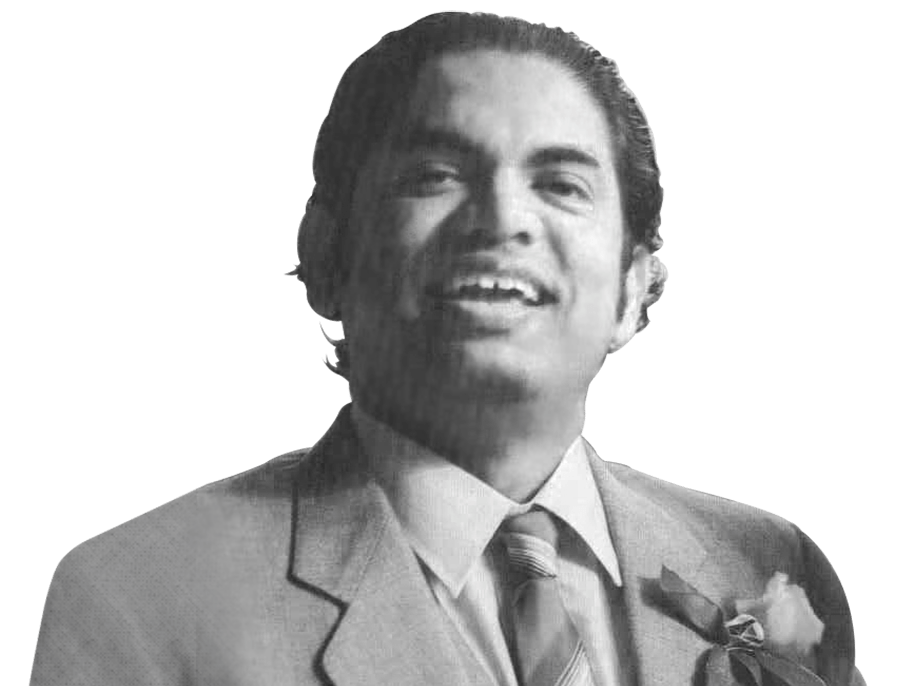


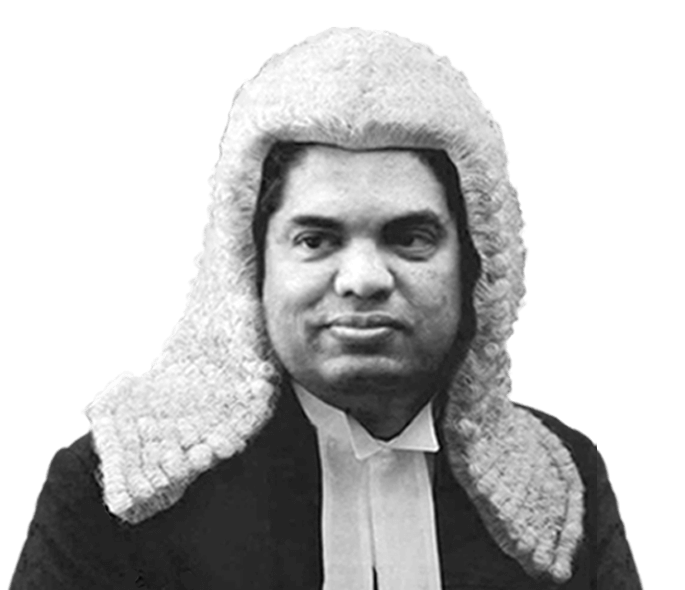

Lalith Athulathmudali, a prominent Statesman, Barrister and a Brilliant Visionary in Sri Lanka. Mahapola and Colombo harbour are two of his most famous concepts
Lalith was a prominent and beloved Sri Lankan Statesman and a Brilliant Visionary. He was a Barrister and one of the most educated politicians. He implemented many brilliant and practical policies and new laws for the betterment of the people, society and the economy. He served as The Minister of National Security & Deputy Minister of Defence, The Minister of Trade & Shipping, The Minister of Education and The Minister of Agriculture, Food & Cooperatives. Mahapola scholarship is considered as the crown jewel of Lalith, but he is responsible for many other distinguished affairs, including modernizing Colombo harbour, strengthening Armed Forces and Police, leading the civil war towards the victory. He dedicated his life to re-establish democracy and freedom in the country and sacrificed his life doing that.



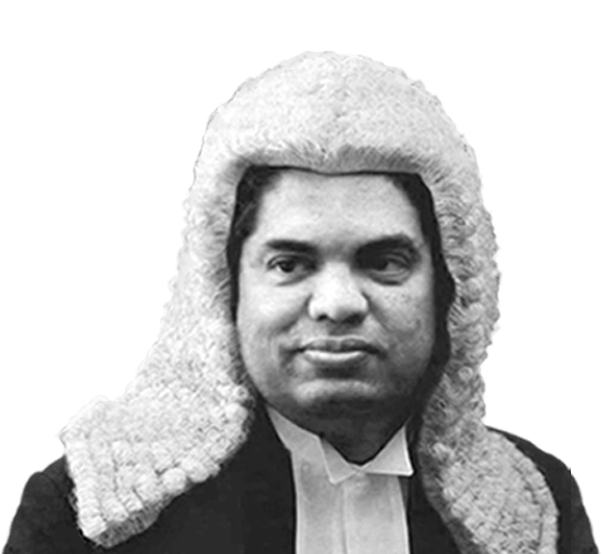
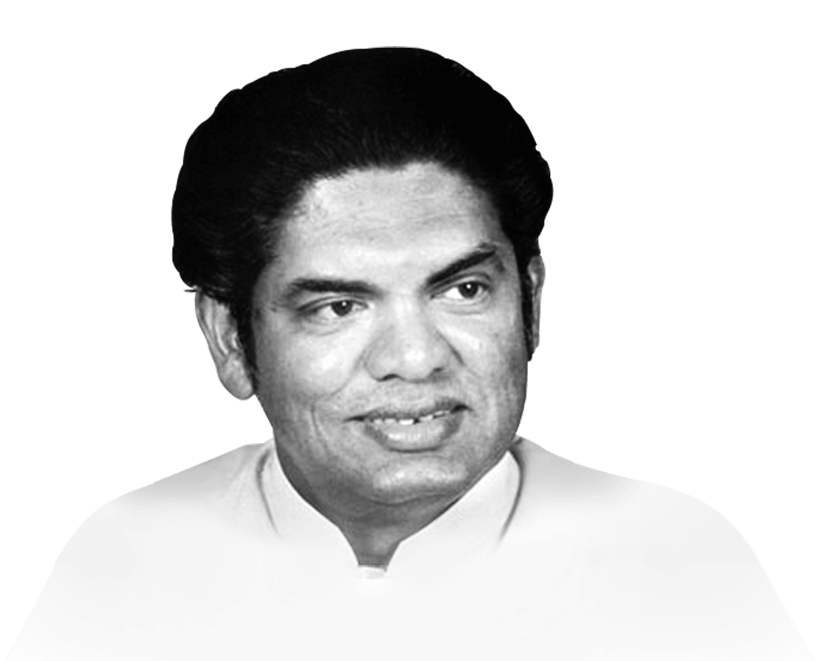
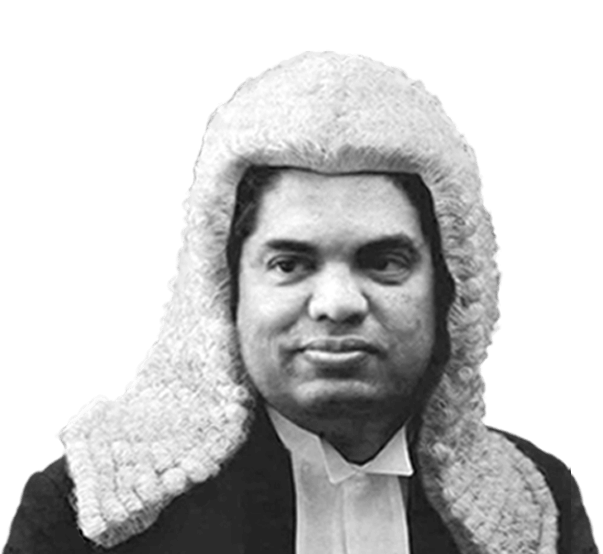
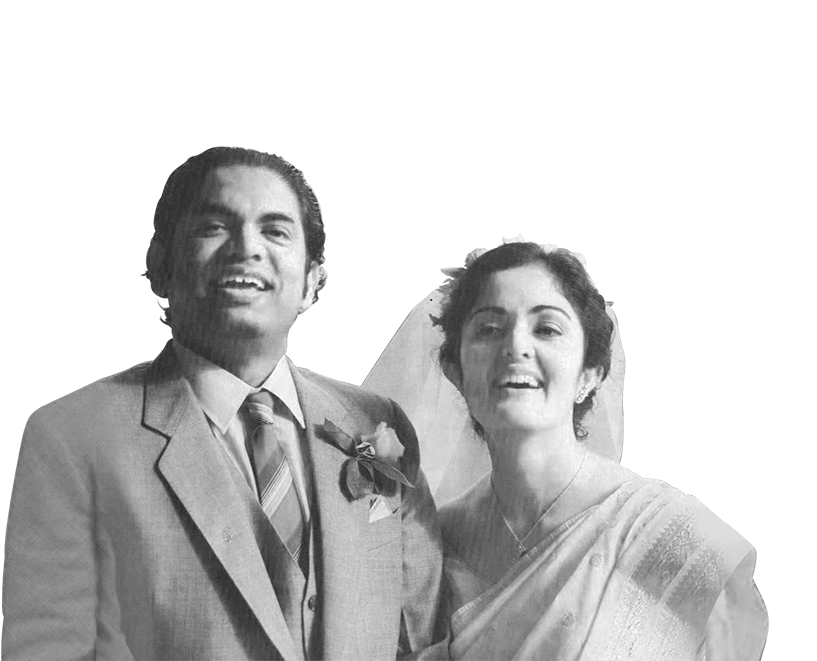

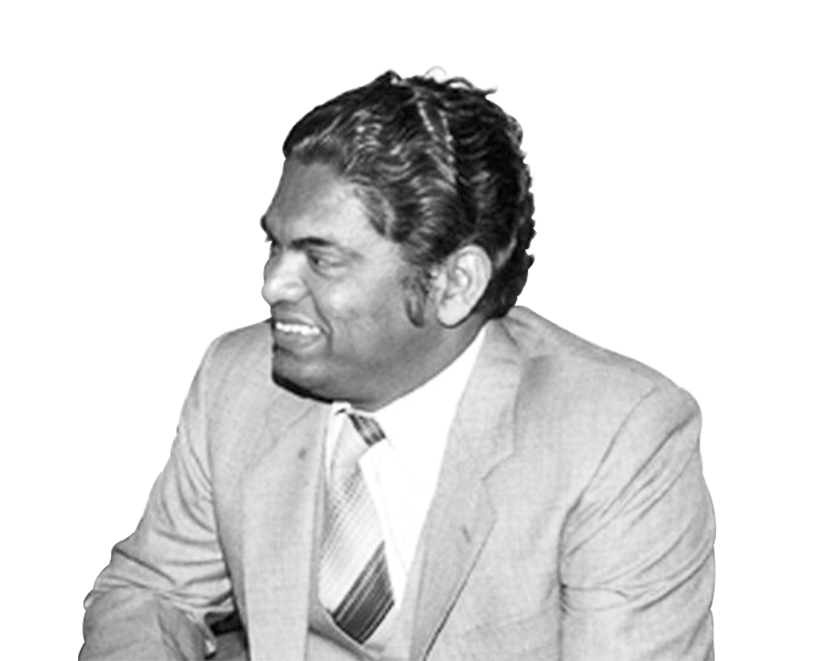
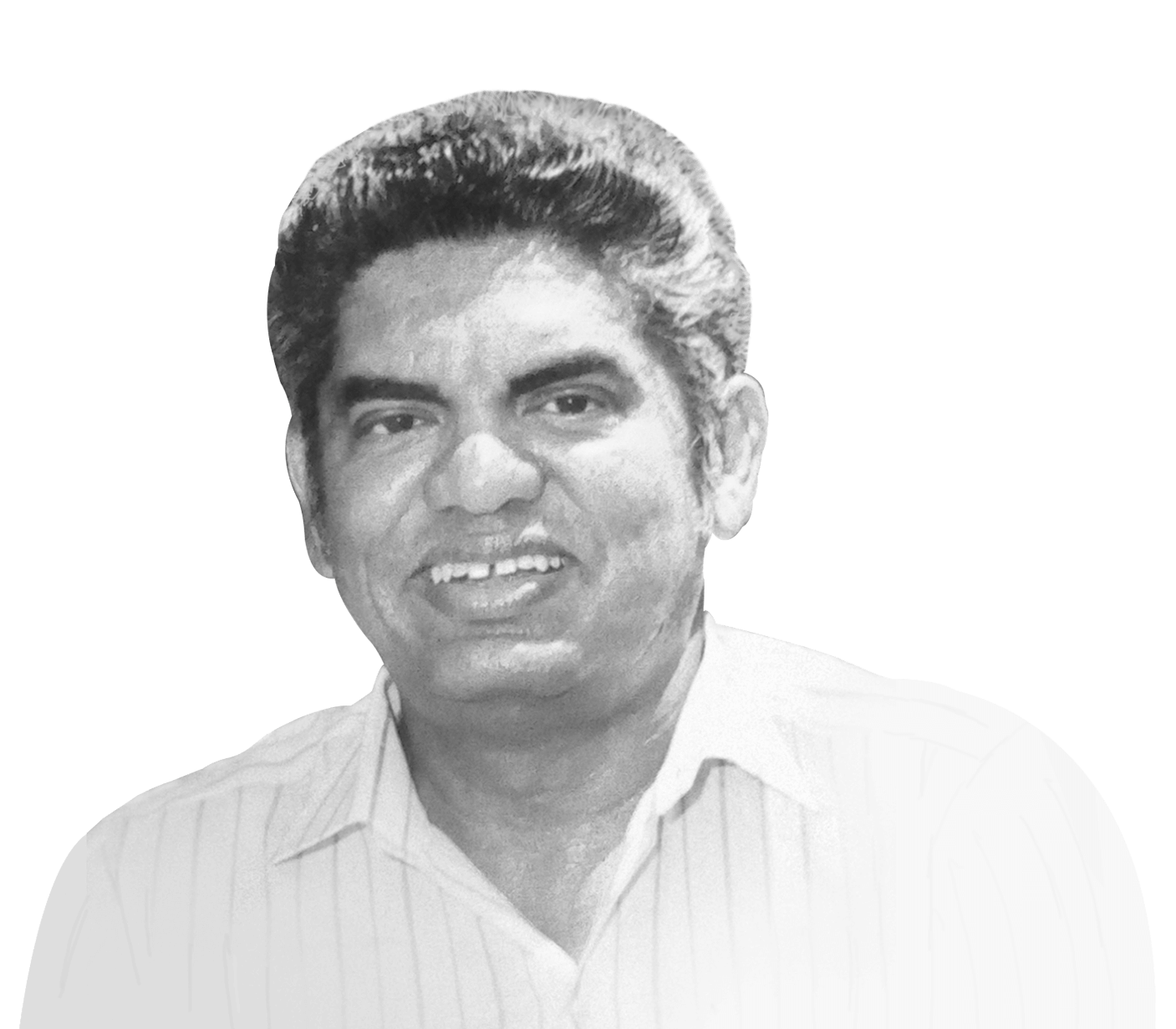

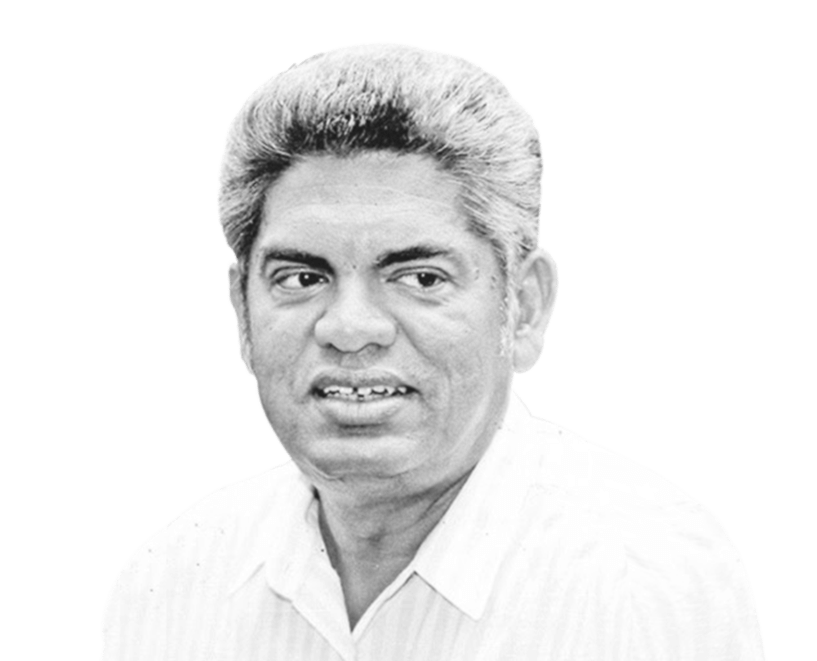
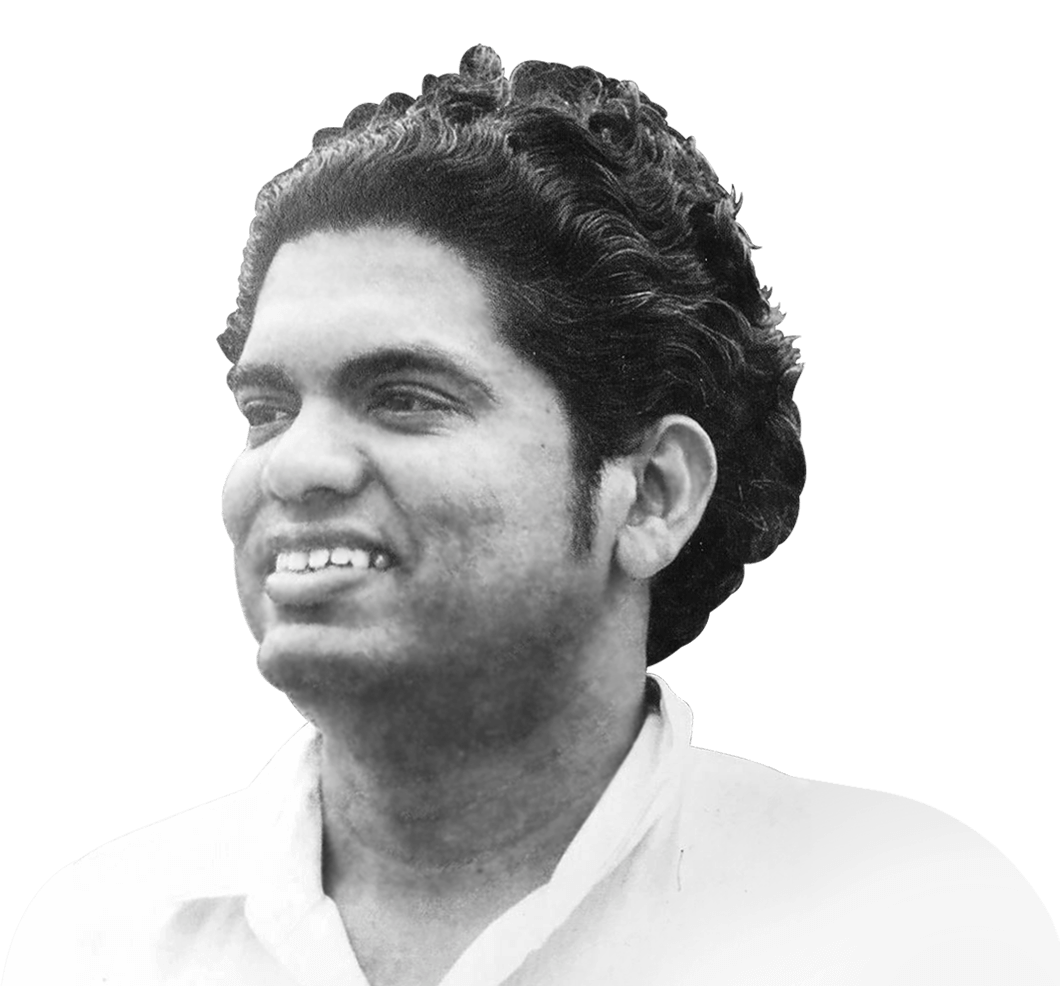
Lalith William Samarasekera Athulathmudali was born on 26th November 1936 in Colombo, Ceylon (Sri Lanka). His mother was Srimathi Samarasekera Athulathmudali and his father D.D. Athulathmudali was a distinguished Lawyer and a Politician. D.D. Athulathmudali was a member of the State Council of Ceylon which was the Legislature of the country back then.
Lalith was the firstborn in the Athulathmudali family. His sister Sujaee Athulathmudali was a Medical Doctor who worked in United Kingdom and his younger brother Dayanthe Athulathmudali is an Aviation Engineer and a Civil Aviation Consultant who served as the country’s Director of Civil Aviation.
Lalith received his primary education at Ladies' College Colombo, St. John's College Panadura and Royal Primary School. He received his secondary education at Royal College Colombo. As a student he showed exceptional competency not only in studies, but also in sports and extracurricular activities. He was a Prefect, House Captain, Team Captain, Debater and a bright student who won so many prizes, awards, trophies and medals. Lalith was always the best, The best student, the best athlete, the best debater. Thus Lalith exhibited conspicuous signs of becoming a prominent person and a leader in the future.
Lalith entered University of Oxford, Jesus College in 1955 to read Jurisprudence. He graduated in 1958 and continued his post graduate studies at Oxford. At Oxford, Lalith joined the Oxford Union and served as the Secretary in 1956 and the Treasurer in 1957. In 1958 he became its President being the first Sri Lankan who held that position. He was also the President of Oxford Asian Society and the founder president of Oxford University Buddhist Society.
In 1958 his father, D.D. Athulathmudali passed away. That forced him to almost drop out of the University due to the lack of funds. But Prime Minister S.W.R.D Bandaranaike provided him with a Ceylon government scholarship to continue his studies considering Lalith's remarkable achievements.
He gained Bachelor of Civil Law (BCL) and the Master's Degree (MA) in 1960 from Oxford. He entered Harvard Law School in 1962 and graduated from Harvard University with an LLM in 1963.
Lalith was admitted to the bar as a Barrister to the Gray’s Inn in 1959.
Lalith joined University of Singapore as a Law Lecturer in 1960 and became the Associate Dean of the Legal Faculty in 1963. Meanwhile he was also a Visiting Lecturer at the Hebrew University in Israel, the University of Edinburgh and the University of Allahabad from 1960 to 1964.
In 1964 Lalith Athulathmudali returned to the motherland, took oaths as an advocate and started his legal career in Sri Lanka (Ceylon).
He joined Ceylon Law College (now Sri Lanka Law College) in 1967 as a Lecturer in Jurisprudence and served there until 1974.
In 1985 Lalith Athulathmudali was appointed a President’s Counsel.
Lalith married Perin E. Captain and she was the President of Sri Lanka Cancer Society. But the marriage didn’t last long due to their differences.
During a tour in Switzerland in 1978, Lalith paid Srimani De Seram a friendly visit who was a friend of Lalith’s brother Dayanthe. She was attached to UNCTAD (United Nations Conference on Trade and Development) in Switzerland. They fell in love and got married in 1981 in Geneva. Lalith’s and Srimani’s only daughter was named as Serela Athulathmudali.
After the assassination of Lalith Athulathmudali, Srimani Athulathmudali launched “Democratic United National Lalith Front”. She was elected to the Parliament and appointed as the Minister of Environment and Women affairs.
By early 1970s Lalith Athulathmudali was already establishing his reputation as a distinguished Lawyer and a future Politician. Lalith was invited to join politics by Prime Minister Dudley Senanayake in 1970. But Lalith believed that it wasn’t the right time. Later, as the new leader of the of the United National Party, J.R. Jayawardene was looking for young, educated, respectable and prominent people to be future Members of Parliament and invited Lalith to join UNP. Thus Lalith joined the Policy Planning Committee of United National Party in 1973.
Lalith was elected to the Partliament from 1977 General Election from Rathmalana electorate. He was appointed to the Cabinet as Minister of Trade and in 1978 he received an additional portfolio of Shipping.
Lalith created lucrative openings for the business community. They benefitted by his pragmatic vision and innovative ideas. He saw the importance of Innovation and exports to the national economy. He established many institutes, strategies to recognize and encourage innovations and exports. He restructured CWE (Cooperative Wholesale Establishment / Sathosa) to become a profitable and a modern organization with a “Supermarket” chain and rebuilt the Lanka Milk foods factory. "Employees’ Trust Fund" is another concept of Lalith.
Lalith created Sri Lanka Ports Authority, re-fleeted the Shipping Corporation with customized new ships and introduced Transhipments, Containerization and many others. By 1980 Colombo Port was outmoded. According to the world port rankings, it held 138th position. He modernized and developed the Colombo port and it soon became profitable. He constructed the first, modern, fully computerized terminal and restructured Colombo Dock Yard to facilitate larger vessels. Thus he could bring the Colombo Port up from 138th to the 22nd position among world ports.
Lalith created a fund with his personal contribution to provide scholarships to students who need financial assistance. It later became "Mahapola". He was the Minister of Trade and Shipping when he enacted the Mahapola Higher Education Scholarship Trust Fund to aid needy undergraduates. It wasn’t just a government aid or an expenditure weighed on people. He developed an entire system to support the trust fund by introducing Mahapola Trade Fairs and Mahapola Lottery.
By 1983, LTTE terrorist activities increased in the north and the east of the country. Therefore, Lalith Athulathmudali was appointed as the Minister of National Security and Deputy Minister of Defence in 1984. He started reforming armed forces as combat-oriented forces and strengthened both Army and Police significantly with manpower, training and new weapons. He increased troops from 11,000 to 64,000, established more than 200 camps in the war zone, started teaching Tamil language to soldiers and established "National Defence Fund" to raise funds.
While strengthening armed forces against terrorists, Lalith believed in winning the hearts of the International community and the non-violent majority in the north for a sustainable peace. Lalith’s fluency in Sinhala, Tamil, English, French and German gave him an additional advantage.
Under the leadership of Lalith, Sri Lankan armed forces were able to liberate east from terrorists in 1986 and Lalith drew his attention towards gaining north. Operation Liberation or commonly known as Operation Vadamarachchi was executed in 1987 under the leadership of Lalith Athulathmudali. It went forward successfully and was only a matter of days to capture the LTTE terrorist leaders and end the civil war when it had to abort due to Indian intervention. Lalith opposed strongly to that and Indo-Sri Lanka Accord.
In 1988, Marxist JVP armed revolt (Janatha Vimukthi Peramuna / People's Liberation Front) aggravated. In May 1988 Lalith declared a truce with the rebellion and tried to resolve the problem which dragged from early 1970s. But it was unsuccessful.
Lalith Athulathmudali tried to obtain the UNP’s nomination for the 1988 Presidential Election. But Ranasinghe Premadasa was able to obtain it defeating Lalith in the UNP’s internal poll to name the Nominee.
Athulathmudali was elected to Parliament from the 1989 General Election obtaining the highest preferential votes in the history. However, Lalith’s intelligence and talents were not utilized enough in the era started from 1989. President Premadasa appointed Lalith Athulathmudali as the Minister of Agriculture, Food & Cooperatives in 1989.
Lalith prepared for an agricultural revolution in the country not only to be self-sufficient but also focusing export. “Maha bathata – Yala Kāsiyata” (Maha season for food/domestic use – Yala season for money/export) was his idea.
However, he held it only for a year and during his short period of time as the Minister of Agriculture, Food & Cooperatives, he introduced the framework for “Farming for the Market”, the Agricultural Export Production Village Scheme, the Export-Oriented Agriculture to the farming community, the concept of Cooperative Banking & Insurance Business, the Evolving Cropping Systems for different climatic zones & soil conditions and expanded the Agro Well System.
He also prepared systems to introduce Agro Business to the farming community. Lalith was always keen on new technology and innovation. He expanded the agricultural research sector and introduced new farming methods to increase productivity.
Lalith saw the importance of farmers’ syndicates. He established Farmer Organizations and organized livestock farmers in to cooperative societies utilizing the cooperative concept productively.
In 1990, Lalith was appointed as the Minister of Education & Higher Education which he held until 1991. He commenced duties, modernizing the education system and resolving the problems which already existed in it.
Lalith believed in “Sama kusalathāwanata – Sama awasthāwa” (Equal opportunity for equal ability). It addressed the problems of Teachers and formalized and regulated promotions. Lalith expanded the Teachers’ training opportunities, introduced English, Sinhala & Tamil training camps for Teachers and initiated Teachers Service & Principals Service.
Athulathmudali considered children as the most valuable treasure to the country and education as the surest way out of poverty. He increased the investment in education sector, established National Education Commission. He introduced evening-classes in schools and compulsory attendance for students in general examination classes. Lalith was anxious to eliminate the discrepancy between schools in urban areas and schools in rural areas. He initiated the concept to use electronic media for education, particularly to benefit the students in rural areas. He also introduced Sports as a vocational subject for O/L & A/L , the Year 9 Technical Certificate and teaching 2nd and 3rd languages in schools.
He understood the importance of not only the higher education but also the vocational education. He established University Colleges, introduced a scheme to increase opportunities for technical & vocational education and started a grading system in technical education. Lalith acquired a 25-acre land in the expectation of building a Technological University (where SLIIT-Sri Lanka Institute of Information Technology stands today) and the headquarters of the Mahapola Trust Fund.
Lalith saw Computer Technology as the future and was eager to establish institutes for it in the country. But it did not become a reality since he resigned from his cabinet position in August 1991.
As a Minister, Lalith Athulathmudali was not a mere executive. He was creative and understood his responsibility as a member of the Legislature. He introduced a new Consumer Protection Law, Consumer Credit Law, Code of Intellectual Property Law, a new Companies Act, Insurance (Special Provisions) Act, Sri Lanka Export Credit Insurance Act, Export Development Board Law, Sri Lanka Ports Authority Act, Marine pollution Prevention Act and initiated Fair Trading Commission Act among many others.
Soon after the 1989 General Election, Lalith found himself quite displeased about President Ranasinghe Premadasa’s regime. Lalith was disappointed and anguished that he couldn’t do much about the escalating terror in the country and the vanishing democracy and freedom. That made Lalith sacrifice his ministerial portfolios and privilages in the larger interests of the country. He resigned from his cabinet position in August 1991.
In the following month, Lalth Athulathmudali, Gamini Dissanayake and several UNP MPs brought forth a motion to impeach President Premadasa. However, the Speaker Mohamed dismissed the impeachment stating a "lack of signatures" and President Premadasa adjourned the Parliament before taking a second attempt to impeach him.
President Premadasa expelled Lalith Athulathmudali along with Gamini Dissanayake and eight others from UNP. However, the rally in Nugegoda which was organized by these expelled MPs, proved that they did the right thing for the country and its people. It was a huge success and nearly half a million people participated in that.
Athulathmudali together with Gamini Dissanayake formed a new party, “Democratic United National Front”. Eagle was its symbol. Many intellectuals and visionaries who once supported UNP, gathered around DUNF.
Lalith became the leader of DUNF and his slogan was “Oba æthi thæna – Nætha biya sæka” (We have no fear if you’re there). Leading the way for a DUNF era in the country, Lalith handed over his papers to contest the 1993 Provincial Council Elections.
On 23rd April 1993, DUNF had organized election rallies all around the country as usual. After participating in few rallies in western province, Lalith arrived the rally in Kirulapone. While he was addressing the people, a gunman shot him twice in the chest. Soon after that, Lalith was admitted to the National Hospital Colombo. But, around 11.05P.M. Lalith Athulathmudali breathed his last.
He was young enough & tough enough to confront and to enjoy the winds of these times, whether the winds of nature or the winds of political circumstance & national danger; He died of exposure. But in a way that he would have settled for, in the line of duty, with his friends and enemies all around supporting him and shooting at him. It can be said of him, as of few men in like position, that he did not fear the weather & did not trim the sails, but instead challenged the wind itself, to improve its direction and cause it to blow more softly & more kindly over the nation and its people.



